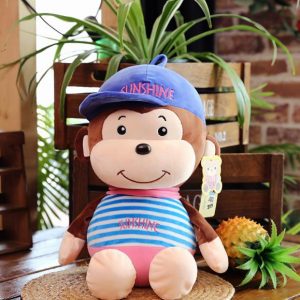Toys play a vital role in promoting child development on various levels. They offer more than just entertainment; they provide opportunities for learning, skill development, and emotional growth. Here are some ways toys benefit child development:
- Cognitive Development: Many toys stimulate cognitive abilities such as problem-solving, critical thinking, and memory. Puzzles, building blocks, and educational games encourage children to use their minds actively and develop cognitive skills.
- Motor Skills: Toys that involve physical activity, such as balls, ride-on toys, and art supplies, help develop gross and fine motor skills. These activities improve hand-eye coordination, balance, and muscle control.
- Creativity and Imagination: Open-ended toys like building sets, dolls, and pretend play items allow children to use their imagination to create new scenarios and stories. Imaginative play fosters creativity and helps develop communication and social skills.
- Social Skills: Board games, cooperative play sets, and role-playing toys encourage social interaction and cooperation. Playing with others helps children learn to take turns, share, negotiate, and resolve conflicts.
- Emotional Development: Toys can aid in emotional expression and self-regulation. Stuffed animals, dolls, and puppets can serve as emotional outlets and companions, helping children process and understand their feelings.
- Language Skills: Toys that encourage communication, such as storybooks, talking toys, and interactive games, contribute to language development and vocabulary expansion.
- Conceptual Understanding: Educational toys that teach numbers, letters, colors, and shapes introduce foundational concepts necessary for early learning.
- Cultural Awareness: Toys that showcase different cultures, languages, and traditions can help foster understanding and appreciation of diversity.
- Confidence Building: Successfully completing tasks with toys, such as completing a puzzle or building a complex structure, boosts a child’s confidence and sense of accomplishment.
- Problem-Solving Skills: Toys that present challenges or require kids to think logically help develop problem-solving skills and encourage perseverance.
- Sensory Exploration: Toys with various textures, sounds, and colors enhance sensory exploration, which is crucial for early brain development.
- Emotional Resilience: Playing with toys allows children to experience a wide range of emotions and learn how to cope with disappointment, frustration, and other feelings in a safe environment.
By providing a diverse range of toys that cater to different aspects of development, parents and caregivers can support and nurture a child’s growth and learning in a fun and engaging way. Through play, children can develop essential skills that will benefit them throughout their lives.








